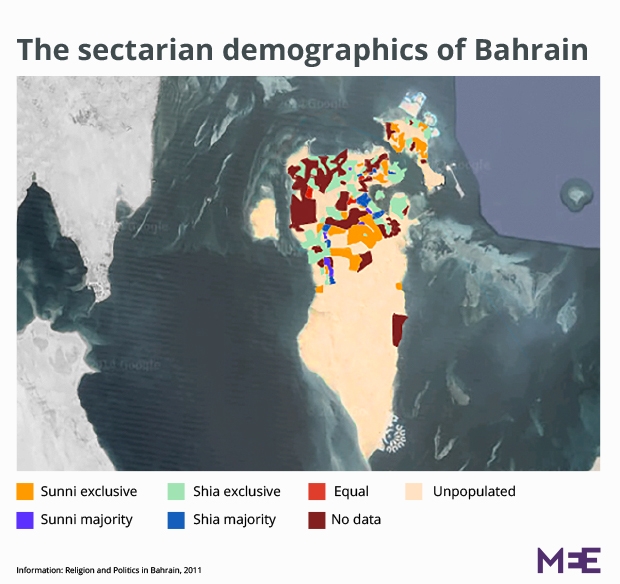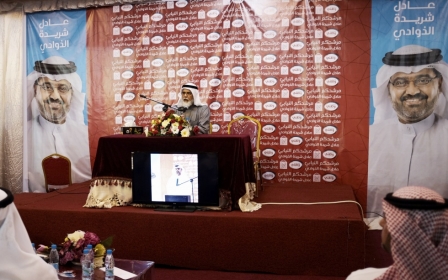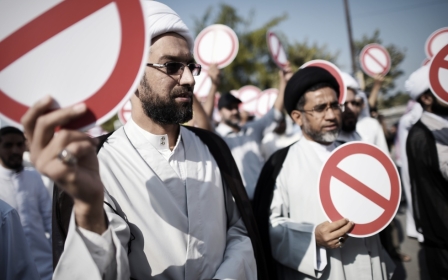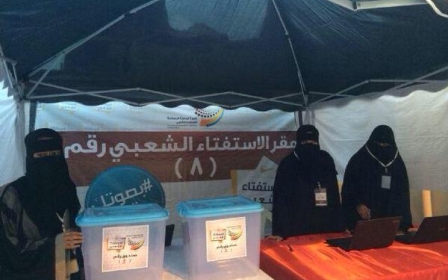Bahrain voting underway amid opposition boycott
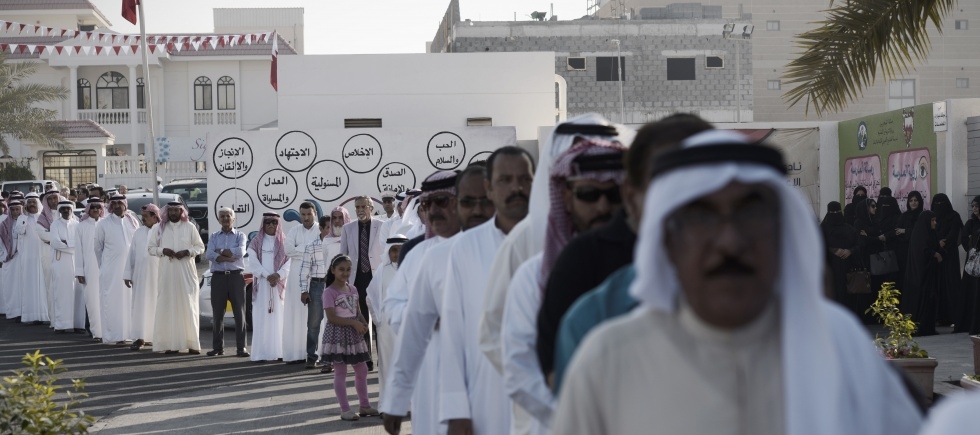
Bahrainis went to the polls Saturday for the first legislative elections since a 2011 uprising, but the vote is being boycotted by the opposition that led Gulf kingdom's pro-democracy movement.
The electorate of almost 350,000 is being called to choose 40 deputies, with Sunnis making up most of the 266 candidates. But the vast majority of Bahrainis are Shiites.
Al-Wefaq, the main Shiite opposition group, has dismissed the electoral process as a "farce" and warned that failure by the kingdom's rulers to loosen their grip on power could trigger a surge in violence.
The opposition's month-long uprising in early 2011 was crushed by the authorities.
The political rivals have struggled to bury their differences through a so-called "national dialogue" that fell apart despite several rounds of negotiations.
Polling stations opened at 8:00 a.m. (0500 GMT) and are due to close at 8:00 p.m. Municipal elections are being held at the same time.
The opposition boycott means voter turnout will be a key marker of the validity of the vote.
Al-Wefaq chief Sheikh Ali Salman has predicted a maximum turnout of 30 percent, saying the boycott stems from "the people's demand for democratic reforms".
Al-Wefaq withdraw its 18 lawmakers after a violent crackdown on demonstrators by security forces.
A second round of voting will be held next Saturday.
Clashes between young demonstrators and security forces erupted in villages outside the capital Manama ahead of the polls, according to witnesses.
In Rifaa, a Sunni-dominated district south of Manama, dozens of people, mostly men dressed in traditional long white attire, lined up ahead of the start of voting.
"This election will help the development of the country under the leadership of the king," said Naima El-Heddi, a civil servant in her 30s.
Information Minister Samira Rajab stressed ahead of the polls that the government would not tolerate "chaos, unrest and foreign meddling" -- a reference to Shiite Iran.
On the eve of elections, hundreds of demonstrators took to the streets of the Shiite village of Diraz in support of the boycott, with police firing tear gas to disperse them.
"Boycott! Boycott!" they chanted.
In other villages AFP reporters saw barricades and burnt rubbish bins, as well as trees and concrete blocks that authorities said were aimed at preventing people going to vote.
The country's political rivals have struggled to bury their differences through a so-called "national dialogue" that fell apart despite several rounds of negotiations.
Salman told AFP that the opposition could only resume talks if the government agreed to implement reforms in line with a strict timetable.
The opposition wants a "real" constitutional monarchy with an elected prime minister independent from the Al-Khalifa royal family.
But the Saudi-backed dynasty has rejected the demand.
In October, a court banned Al-Wefaq for three months for violating a law on associations.
The movement refused to resume talks with the authorities in September despite a new proposal announced by Crown Prince Salman bin Hamad al-Khalifa.
Salman said he did not expect the opposition to reach an agreement with the government, following protests he said had cost "at least 100 lives" over the past three years.
Authorities ignored pleas by human rights groups last year to release political prisoners, instead increasing the punishment for violent crimes.
Attacks that cause death or injuries can now be met with capital punishment or life imprisonment.
New MEE newsletter: Jerusalem Dispatch
Sign up to get the latest insights and analysis on Israel-Palestine, alongside Turkey Unpacked and other MEE newsletters
Middle East Eye delivers independent and unrivalled coverage and analysis of the Middle East, North Africa and beyond. To learn more about republishing this content and the associated fees, please fill out this form. More about MEE can be found here.


